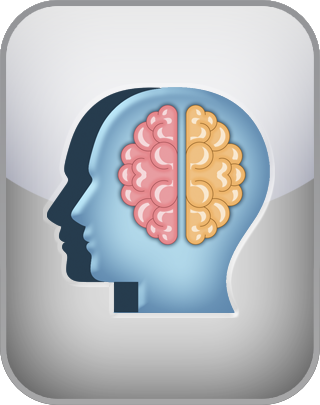Academically reviewed by Dr. Jennifer Schulz, Ph.D., associate professor of psychology
Depersonalization-Derealization Test
Daydreaming, zoning out, and feeling outside the body are normal experiences, but for some, these can be invasive symptoms—taking on clinically significant dimensions and resulting in impairment in social contexts or other important areas of functioning.
This 20-item scale measures the specific dissociative experiences of detachment clinically known as depersonalization and derealization.
Do you have a tendency to depersonalize and/or derealize? For each of the following statements, indicate your answer below.
Question 1 of 20
For me, sounds often seem louder or softer than they really are.
| Disagree | Agree |
NEXT
The IDRlabs Depersonalization Test is inspired by the diagnostic criteria of Depersonalization-Derealization Disorder (Diagnostic and Statistical Manual of Mental Disorders, 5th ed.) and the Felt Sense of Anomaly Scale. IDRlabs is not affiliated with the American Psychiatric Association or the authors of the Felt Sense of Anomaly Scale.
Depersonalization: Depersonalization is the sensation of detachment from one’s self and identity; it can be described as alterations in our perception of ourselves. We might feel like an outside observer in relation to our thoughts, feelings, actions, memories, or sense of body, self, and identity. One feels like their feelings and sensations aren’t their own, as if one is outside their own body or as if one is an observer detached from their own mental processes and body.
Derealization: Derealization is the sensation of detachment from one’s surroundings and can be described as an alteration in our perception of our external world, where individuals or objects feel dreamlike, unreal, distorted, foggy, or illusory while lacking in emotional coloring and depth. Thus, depersonalization is specifically a sense of detachment from one’s self and one's identity, whereas derealization is when things or people around one may seem unreal.
Total Depersonalization-Derealization: This is your total tendency to depersonalize and derealize. High scores may indicate inclinations toward dissociative disorders marked by symptoms such as the following: Detachment from your own feelings, distorted body image and/or distorted bodily sensation, loss of sensation in different parts of your body, or feeling unreal and/or like a spectator in your own life.
Experiencing dissociation is common. We may sometimes find ourselves daydreaming or zoning out while watching TV, or we may not be cognizant of someone talking to us, as if we’re in a bubble and only half-conscious. Such occurrences are considered normal and are often caused by tiredness, stress, or lack of sleep.
On the other hand, if you experience the above symptoms and they represent invasive, recurring events that cause significant distress and impairment in social contexts or important areas of functioning, it would be advisable to address such challenges with a mental health professional.
Several researchers and psychologists have studied dissociation and Depersonalization-Derealization Disorder, and this test is similar to inventories measuring depersonalization and derealization such as the Cernis Felt Sense of Anomaly (CEFSA) scale, which measures felt sense of anomaly—a common theme across different dissociative experiences.
The IDRlabs Depersonalization-Derealization Test is inspired by the diagnostic criteria of Depersonalization-Derealization Disorder and is designed to measure the extent to which you experience different symptoms of depersonalization and derealization. The Depersonalization-Derealization Test cannot be used as an instrument to diagnose a disorder, nor should it be confused with an instrument measuring psychopathology in a clinical or psychiatric context. Any psychological evaluation should be performed in cooperation with a mental health professional.
The authors of this online personality test are certified in the use of multiple personality tests and have worked professionally with typology and personality testing. The results of our online quiz (or personality test) are provided "as-is" and should not be construed as providing professional or certified advice of any kind. For more on our online personality test, please consult our Terms of Service.
References
- Cernis E, Beierl E, Molodynski A, Ehlers A, Freeman D. A new perspective and assessment measure for common dissociative experiences: 'Felt Sense of Anomaly'. PLoS One. 2021 Feb 24;16(2).

 English
English  Español
Español  Português
Português  Français
Français  Italiano
Italiano  Polski
Polski  Türkçe
Türkçe 